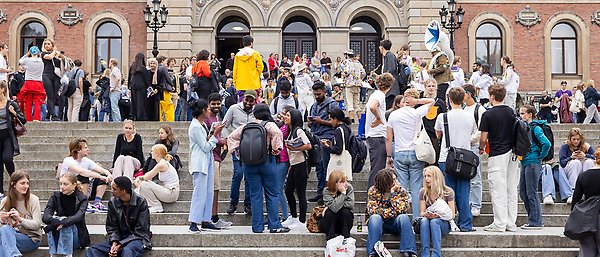Uppsala University Advocates for Academic Freedom with Call for Legal Support and Increased Financial Resources
“Although the Swedish constitution contains a general statement on academic freedom for research, the fact that higher education is not included, combined with the limited wording in the constitution on the freedom of research, brings the overall score down.” This is the analysis of Shirin Ahlbäck Öberg, Professor of Political Science, in this column.
Higher education and research require wide margins when it comes to freedom. By ‘freedom’ I mean freedom from undue control by politicians, the market or other ideological organisations; actors whose interests may lie in drawing attention to or describing the world or phenomena in a way that is not supported by scientific evidence. The obvious starting point is that our universities and colleges should be able to research and teach freely, without fear of repercussions, on issues that may be perceived by outsiders as unimportant or even controversial.
So what does academic freedom mean? A frequently cited definition states that academic freedom is “the freedom to conduct research, teach, speak, and publish, subject to the norms and standards of scholarly inquiry, without interference or penalty, wherever the search for truth and understanding may lead”, (UN Global Colloquium of University Presidents 2005). In this definition, academic freedom is linked only to the individual level, but attention should also be paid to the institutional level. In the literature, the concept of academic freedom is linked in part to institutions (higher education institutions) and in part to individuals.
However, individual freedom must be understood in its institutional context. Academic freedom is not a private privilege for individuals, rather it involves researchers and teachers submitting in their activities to scientific values and standards in order to contribute to good research, teaching and other forms of knowledge dissemination. Institutional autonomy and individual academic freedom are seen as interdependent, that is to say, institutional autonomy is a necessary but not sufficient condition for individual academic freedom.
What institutional arrangements are needed to ensure the true independence of academic activities? Two crucial parameters are that the activities have legal support – preferably constitutional support – and sufficient financial resources. This is also underlined in international legal acts and agreements on the status of higher education institutions. However, support in Swedish legislation for the right of state higher education institutions to self-govern is very weak, as there is no formal regulation of the autonomy of such institutions. This has been highlighted in a study in which aspects such as legal regulation of the institutional autonomy of higher education institutions was compared between all EU countries, including the UK: Sweden was ranked 26th out of 28 (Karran et al. 2017).

Swedish universities and colleges run by the state are formally part of the public organisation of administrative authorities. It is precisely this aspect that stands out in international comparisons. Photo: Mikael Wallerstedt
An aggravating circumstance in the Swedish case is that the universities and colleges run by the state (the majority) are formally part of the public organisation of administrative authorities. It is precisely this aspect that stands out in international comparisons and forms an important part of the explanation as to why Sweden ranks low in terms of institutional autonomy compared to other EU countries.
How is it that the majority of Swedish higher education institutions have ended up in the category of state administrative authorities, i.e. they have acquired the same legal personality as the state? This remarkable fact has never been the subject of a proper discussion, and on closer inspection I can see that it is not the result of a well-considered policy decision by our governing politicians either. What has happened is that academic activities at our universities and colleges, which demand independence, have been allowed to slip into a relationship of obedience to the state without any discussion of principle, and where the political and bureaucratic understanding of the real meaning of free academia has gradually been overshadowed by this institutional weakness.
But how do things look in terms of individual freedom? Currently, only the freedom of research is constitutionally regulated and this regulation was introduced as late as 2010. There is no corresponding constitutional regulation of the freedom of higher education. Since 2021, however, the Higher Education Act has included a statement that, as a general principle, academic freedom must be promoted and protected in the activities of higher education institutions. In other words, the task of promoting academic freedom is imposed on the higher education institutions, while the state does not commit itself to any part of this. Sweden is also at the bottom of the table in terms of this individual level of academic freedom among the countries included in the Karran et al. study (2017).
Although the Swedish constitution contains a general statement on academic freedom for research, the fact that higher education is not included, combined with the limited wording in the constitution on the freedom of research, brings the overall score down. There was only one area in which Sweden came out reasonably well in the comparative study of academic freedom: the willingness to sign international legal acts and agreements to protect academic freedom. Otherwise, it received a grade of fail.
Shirin Ahlbäck Öberg, Professor at the Department of Government

